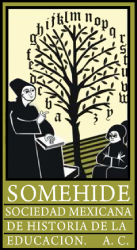Evolution of education and political ideologies in modern Japan: From Meiji Restoration to post-war reforms
DOI:
https://doi.org/10.29351/rmhe.v13i25.634Keywords:
Meiji Restoration, Japanese education, political ideology, educational reform, post-war JapanAbstract
This study examines the evolution of education and political ideologies in modern Japan, from the Meiji Restoration to the post-World War II era. Using a qualitative historical methodology, it analyzes primary and secondary sources to explore the interplay between educational reforms and political shifts, focusing on key policies and their societal impacts. The research highlights how education both shaped and was shaped by political ideologies, contributing to Japan’s modernization and democratic transition. Contributions include a comprehensive timeline spanning over a century, an interdisciplinary approach bridging educational history and political science, and a critical analysis of ideological shifts in education. The study also emphasizes the post-war democratic transition, offering contemporary relevance and policy implications for current educational challenges. By tracing these developments, it provides insights into the complex relationship between education, politics, and national identity in modern Japan.
References
Abegglen, J. C. (1970). The economic growth of Japan. Scientific American, 222(3), 31-37. http://www.jstor.org/stable/24925751
Arai, Y. (2019). Modern democratic theories and political education in Japan. Educational Studies in Japan, 13, 67-79. https://doi.org/10.7571/esjkyoiku.13.67
Aspinall, R. W. (2001). Teachers’ unions and the politics of education in Japan. State University of New York Press. https://eric.ed.gov/?id=ED460440
Bamkin, S. (2019). Moral education in Japan: The disjoint between research on policy and research on practice. Social Science Japan Journal, 22(2). https://doi.org/10.1093/ssjj/jyz008
Beauchamp, E. R. (1971). Recent developments in the Japanese student movement. Peabody Journal of Education, 48(4), 321-324. https://eric.ed.gov/?id=EJ041576
Beauchamp, E. R. (1987). The development of Japanese educational policy, 1945-85. History of Education Quarterly, 27(3), 299-324. https://doi.org/10.2307/368630
Fujita, H. (2000). Education reform and education politics in Japan. American Sociologist, 31, 42-57. https://doi.org/10.1007/s12108-000-1033-9
Grajdanzev, A. J. (1943). The “ethical elevation” of Japanese politics. Far Eastern Survey, 12(7), 67-71. https://oa.mg/work/10.1525/as.1943.12.7.01p1178x
Griffis, W. E. (1912). Mutsuhito the Great. The North American Review, 196(682), 328-338. http://www.jstor.org/stable/25119836
Hood, C. P. (2001). Japanese education reform: Nakasone’s legacy. Routledge. https://books.google.co.uk/books?id=7R5ZgKpwyc8C&printsec=frontcover#v=onepage&q&f=false
Hoston, G. A. (1984). Marxism and national socialism in Taishõ Japan: The thought of Takabatake Motoyuki. The Journal of Asian Studies, 44(1), 43-64. https://doi.org/10.2307/2056746
Ide, K. (2009). The debate on patriotic education in post-World War II Japan. Educational Philosophy and Theory, 41(4), 441-452. https://doi.org/10.1111/j.1469-5812.2008.00510.x
JICA [Japan International Cooperation Agency] (2011). Part I: Overview of the history of Japan’s education. https://www.jica.go.jp/Resource/jica-ri/IFIC_and_JBICI-Studies/english/publications/reports/study/topical/educational/pdf/educational_02.pdf
Liu, J. (2019). On the education reform of the Meiji Japan. International Journal of New Developments in Engineering and Society, 3(4), 21-27. https://doi.org/10.25236/IJNDES.030404
MEXT [Ministry of Education, Culture, Sports, Science and Technology] (1947). White paper on education, culture, sports, science, and technology. Chapter 1. Part 3: How the fundamental law of education befitting to the new times should be. https://www.mext.go.jp/b_menu/hakusho/html/06101913/004.htm
MEXT (2025). Overview of education policy. https://www.mext.go.jp/en/policy/education/overview/index.htm
Morito, T. (1955). Educational reform and its problems in post-War Japan. International Review of Education / Internationale Zeitschrift Für Erziehungswissenschaft / Revue Internationale de l’Education, 1(3), 338-351. http://www.jstor.org/stable/3441564
Murakami, S., & Bunkichi, I. (1956). Post-war reconstruction of Japanese education and its social aspects. The Journal of Educational Sociology, 29(7), 309-316. https://doi.org/10.2307/2264174
Nakamura, Y., & Tobe, R. (1988). The Imperial Japanese Army and politics. Armed Forces & Society, 14(4), 511-525. http://www.jstor.org/stable/45305016
Okada, A. (2012). Education reform and equal opportunity in Japan. Journal of International and Comparative Education, 1, 116-129. https://doi.org/10.14425/00.45.78
Shimbori, M. (1960). The fate of postwar educational reform in Japan. The School Review, 68(2), 228-241. http://www.jstor.org/stable/1083588
Sims, R. (2001). Japanese political history since the Meiji renovation 1868-2000. Palgrave Macmillan.
Sullivan, P. (1966). John Dewey’s philosophy of education. The High School Journal, 49(8), 391-397. http://www.jstor.org/stable/40366240
Swale, A. (2013). The political thought of Mori Arinori: A study of Meiji conservatism. Routledge.
The Journal of Education (1908, jan. 23). The Imperial Rescript on Education in Japan. The Journal of Education, 67(4), 102. https://www.jstor.org/stable/42811291
The University of Tokyo (2025). About the University of Tokyo. https://www.u-tokyo.ac.jp/en/about/about.html
Waseda University (2020). History. https://www.waseda.jp/top/en/about/history
Yamashita, H., & Williams, C. (2002). A vote for consensus: Democracy and difference in Japan. Comparative Education, 38(3), 277-289. https://doi.org/10.1080/0305006022000014142
Yonezawa, A. (2003). The impact of globalization on higher education governance in Japan. Higher Education Research & Development, 22, 145-154. https://doi.org/10.1080/07294360304113
Yu, A. C. (1872). Gakusei (educational system, the education system order). Japanese Wiki Corpus. https://www.japanesewiki.com/history/Gakusei%20(educational%20system,%20the%20Education%20System%20Order).html
Downloads
Published
How to Cite
Issue
Section
License
Copyright (c) 2025 Habib Badawi

This work is licensed under a Creative Commons Attribution-NonCommercial-ShareAlike 4.0 International License.









